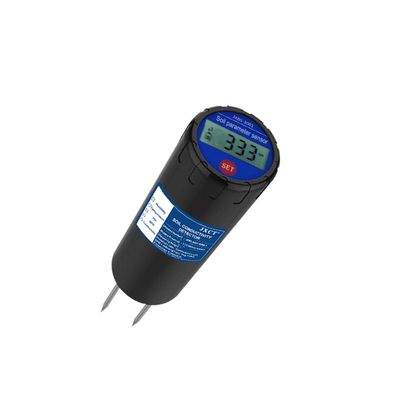

- Home
- Companies
- Soil Sensors & Weather Detectors for ...
- Articles
- Measuring Soil Electrical Conductivity ...

Measuring Soil Electrical Conductivity with Soil EC Meters
Introduction:
Soil electrical conductivity (EC) is a vital parameter that provides valuable information about soil properties and fertility. It measures the ability of the soil to conduct an electrical current, which is directly related to the concentration of dissolved salts and the moisture content in the soil. Soil EC meters have emerged as a useful tool for farmers and agronomists to measure and monitor soil EC levels. This article aims to explore the significance of measuring soil EC with soil EC meters and its impact on soil management and crop productivity.
Understanding Soil Electrical Conductivity:
Soil EC is influenced by various factors, including soil texture, organic matter content, moisture levels, and the presence of soluble salts. It is commonly measured in milliSiemens per meter (mS/m) or deciSiemens per meter (dS/m). Low soil EC values indicate low salt and nutrient levels, while high values indicate high salt and nutrient concentrations.
Importance of Measuring Soil EC:
Assessing Soil Salinity: Soil EC meters play a crucial role in assessing soil salinity levels. Excessive salt accumulation in the soil can negatively impact plant growth and productivity. By measuring soil EC, farmers can identify areas with high salinity levels and take appropriate measures to mitigate the effects, such as leaching or implementing salt-tolerant crop varieties.
Monitoring Soil Moisture: Soil EC is closely related to soil moisture content. By measuring soil EC, farmers can gain insights into soil moisture levels and adjust irrigation practices accordingly. This helps in optimizing water usage, preventing over- or under-irrigation, and promoting efficient water management.
Evaluating Soil Fertility: Soil EC is an indirect indicator of soil fertility. It provides information about the availability of essential nutrients in the soil. By measuring soil EC, farmers can identify nutrient-rich or nutrient-deficient areas within their fields. This data enables them to tailor their fertilization strategies, ensuring that crops receive adequate nutrients for optimal growth and productivity.
Precision Agriculture: Soil EC meters are valuable tools in precision agriculture. By mapping soil EC levels across a field, farmers can create variable rate application maps for fertilizers and amendments. This targeted approach allows for precise nutrient application, reducing input costs, minimizing nutrient runoff, and maximizing crop yield.
Soil Health Assessment: Measuring soil EC is an integral part of assessing overall soil health. It helps in identifying areas with poor soil structure, compaction, or drainage issues. By addressing these soil health concerns, farmers can improve soil quality, root development, and nutrient uptake, leading to healthier plants and increased crop productivity.
Conclusion:
Measuring soil electrical conductivity with soil EC meters is a valuable practice for farmers and agronomists. It provides essential information about soil salinity, moisture levels, fertility, and overall soil health. By utilizing this data, farmers can make informed decisions regarding irrigation, fertilization, and crop management practices. This precision approach optimizes resource utilization, minimizes environmental impact, and enhances crop productivity. Incorporating soil EC meters into soil management strategies is, therefore, crucial for sustainable agriculture and ensuring food security in a world with increasing population and limited resources.
